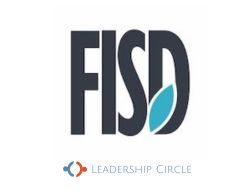 DEIBJ Is Not Cancelled: The Perennial Value Of Cultivating Inclusive Communities Through Social-Emotional LearningEducators have long recognized the importance of teaching students skills in perspective-taking, emotion management, and self-regulation. Research from CASEL, the Center for Social and Emotional Learning, highlights the benefits of such skills for young children. It shows that when these skills are taught, academic performance improves, particularly in reading, and there is a decrease in rates of bullying, substance abuse, and early sexual behavior. Independent schools have been incorporating social-emotional learning into their classrooms for decades, using curricula such as Second Step or Responsive Classroom. Through brief, intentional social skills lessons, children strengthen their ability to consider perspectives different from their own. They also practice self-regulation of their physical bodies and body language, as well as emotion management, learning to recognize emotions and accompanying physical sensations, and how to effectively manage or change them. These skills require continual practice, akin to any other skill, to strengthen over time. Schools that invest in leadership development aimed at enhancing social-emotional learning skills for both students and adults in their community create environments conducive to robust Diversity, Equity, Inclusion, Belonging, and Justice (DEIBJ) initiatives. Professional development opportunities focused on self-awareness and understanding different personality styles, including personality assessments, are beneficial. Courses that facilitate understanding of one’s impact on others and encourage deep listening and curiosity about others’ perspectives are valuable. Additionally, courses teaching effective feedback skills, both in asking for and receiving feedback, are essential. By investing in the social skills development of both students and adults within their community, schools foster environments where diversity is celebrated, equity is prioritized, and all voices are included in policy development. These schools cultivate a strong sense of belonging, providing ongoing opportunities to develop and celebrate relationships. Creating communities where diverse perspectives and cultures are valued, where equity is evident, and where all individuals feel a powerful sense of belonging is essential for fostering the deep foundations of DEIBJ. Both students and the adults who lead them must focus on developing these essential skills. |





















 .
. 
